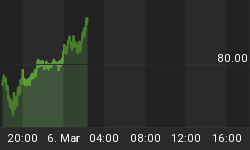The Trump administration has announced a plan to offer Asian countries an alternative to China’s ‘One Belt, One Road’ initiative, which could have been subdued somewhat by the Trans-Pacific Partnership (TPP) trade agreement, had Trump not withdrawn from it hastily last year. But the alternative is a chump change compared to what Beijing is bringing to the table.
Speaking at the U.S. Chamber of Commerce ahead of a trip to Malaysia, Singapore and Indonesia this coming weekend, Secretary of State Michael Pompeo announced $113 million in new regional investments focused on technology, energy and infrastructure.
The initiative was initially mentioned by Trump last November during his five-nation tour of Asia.
Among the new investments outlined by Pompeo, the U.S. would invest $25 million to expand its technology exports to the region and add nearly $50 million this year to help countries produce and store their energy resources.
Experts are not exactly thrilled with the plan. From the perspective of scale, China’s One Belt One Road plan crushes it and most see now way that Pompeo’s plan can compare to the billions of dollars in Chinese investment pouring into the region.
Nor has American been winning hearts and minds in Asia, needless to say.
Polls in the region have shown that America’s reputation has deteriorated since Trump withdrew the US from the Trans-Pacific Partnership (TPP) free-trade deal last January. Despite the US exit, the 11 other signatories moved ahead with a new deal signed in March.
On other side, China has been actively increasing its infrastructure loans to countries like Sri Lanka, Vietnam, Pakistan, Bangladesh, Nepal…And there is a need for investment. According to ADB, the continent needs $26 trillion in infrastructure investment by 2030, Bloomberg reported.
China's investment wheel was introduced in 2013 and centers on pumping hundreds of billions of dollars into ports, rail lines and other projects across Asia, Europe and Africa. If the U.S. is just playing the “assistance” game and throwing a few bones to Southeast Asian countries here and there, it can’t compete with Beijing’s soft-power investments that buy it influence on a massive scale and hook countries on massive debts. Related: Treasury Mulling Unilateral $100B Capital Gains Tax Cut
In July, newly appointed Malaysian Prime Minister Mahathir Mohamad launched graft probes into quite a few of Chinese-funded projects resulting with more than $20 billion have now been suspended.
Last November, Pakistan cancelled a $14 billion dam project last year, citing worries over terms.
The core of Pompeo’s speech is that American private investment is more reliable, more trustworthy than Chinese money, much of which comes from the state level with strings attached.
Whether realistic or not, Pompeo dangled an open and vague threat to Beijing, saying the U.S. would “oppose any country” that seeks to dominate the region.
“Like so many of our Asian allies and friends, our country fought for its own independence from an empire that expected deference…We thus have never and will never seek domination in the Indo-Pacific, and we will oppose any country that does,” Pompeo said.
By Charles Benavidez for Safehaven.com
More Top Reads From Safehaven.com

















